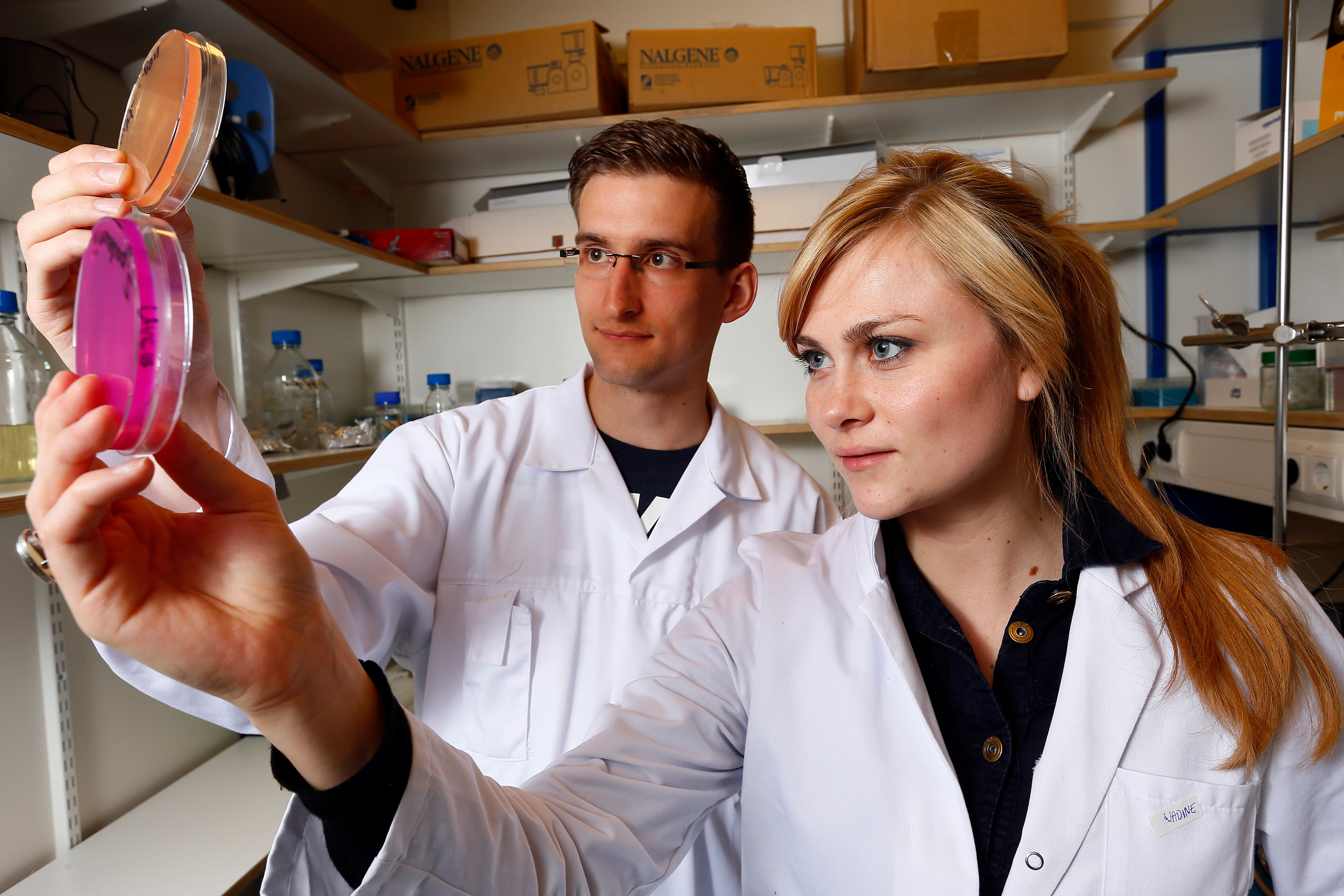What is bionanoscience? It is the exciting new field where the worlds of biophysics, nano-engineering, and biology meet. At the Department of Bionanoscience we are fascinated by the question of how molecules work together to create life at the cellular scale. A better understanding of the cell and its behaviour is also relevant for the development of new biomaterials (in food or high-tech materials) and new energy sources (biofuels).
In our research programs we apply innovative tools from nanotechnology to understand molecular mechanisms at the single-molecule scale. We develop nanoscopy techniques to observe the dynamics of molecules in their native environment at high resolution. We use biomimetic and synthetic biology approaches to recreate functional cellular modules, and we combine all these approaches with cell biology, biochemistry, and theoretical modelling.
Our goals are ambitious: for example, we aim to develop technology that allows to determine the sequence of a single protein using advanced fluorescence techniques. We aim to understand the functional relation between gene expression and the three-dimensional organization of DNA-protein complexes in cells, and we aim to re-build essential biological functionality from molecular components using a bottom-up approach, eventually leading to the design of a synthetic cell.
The research in the department focusses on the following areas: Biomaterials and biomedicin, Biophysics of the genome, Molecular and evolutionary cell biology, Novel imaging and nanotechnology, Synthetic Cell and Theoretical biophysics and computational biology.


